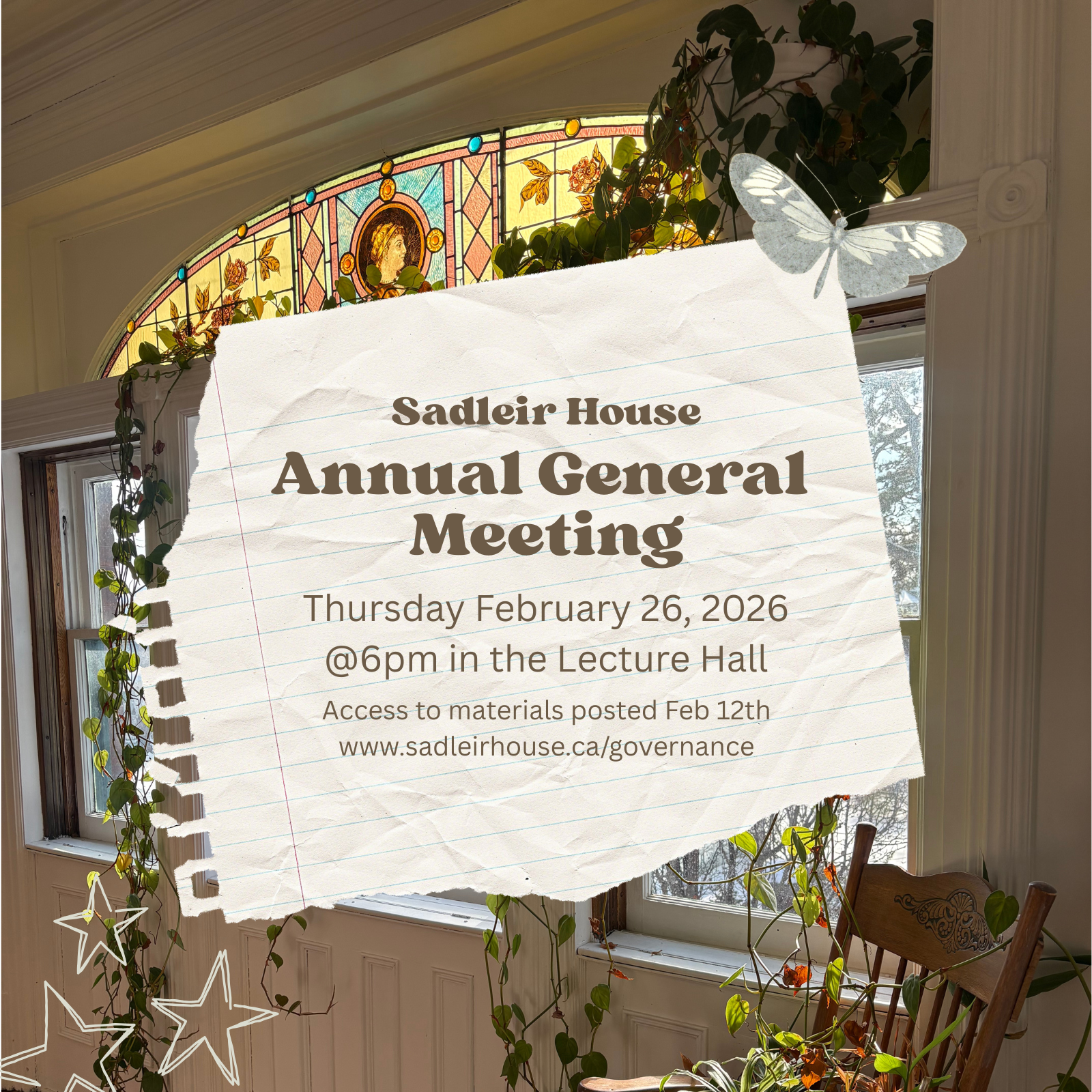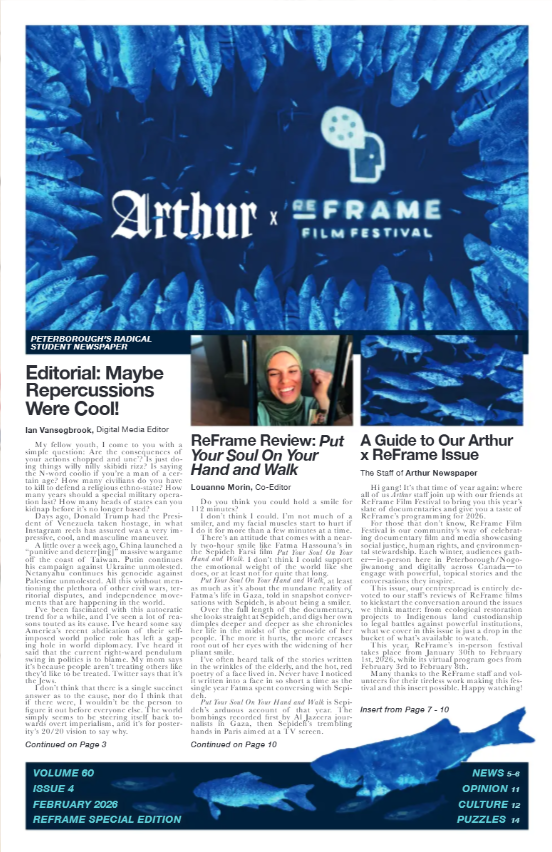On November 8th, a collegiate way international mini-symposium was held at Traill College, in Bagnani Hall. The event was co-sponsored by Trent University’s Champlain and Traill Colleges, and the moderator for the night was Trail College President Dr. Michael Eamon. The event included four panel speakers that shared their experiences and expertise in a discussion about the Challenges That Face the 21st Century Collegiate University.
Part of what makes Trent a unique university is the college system, a 900-year-old tradition that began in Oxford, and has been adopted by hundreds of institutions worldwide. Trent is one of the few universities in its area to have the collegiate system, one designed to give students the benefits of belonging both to a large, internationally renowned institution and to a smaller, multidisciplinary, academic college community.
However, with the evolving changes in the 21st century university, the dynamics of the university’s learning experiences changes. A dialogue has been established to address the changes happening to the college system, which is the heart of the university’s success, and Trent has joined the conversation.
Dr. Eamon introduced the four panel speakers who were heavily involved in the Trent community, and guided the conversation. Rebeka O’Regan is a current Trent undergraduate student in her fourth year of studies, known for her current position as Champlain College Cabinet President as well as her previous positions on college cabinet; her job at the college office; and her volunteer work as an orientation week leader. Duc Hien Nguyen is a Trent University and University of Toronto alumnus, participating in both Lady Eaton College and Massey College respectively; held positions at Lady Eaton College Cabinet; and has made achievements in the field of economics. Professor Theresa Topic is known for her former role as Principal of Brescia University College, and for teaching at Western University in Ontario. Last, but certainly not least, Trent’s first president and Vanier Professor Emeritus Professor Tom Symons was a panel speaker. The experiences and knowledge generously shared by the speakers were interesting and insightful.
Dr. Eamon posed a few guiding questions to facilitate the conversation, including the greatest aspect and challenge facing the collegiate way. The speakers shared their personal experiences as students under the collegiate system, and it was interesting to see the similarities between four such different speakers, undergoing relatable memories within the collegiate way. All speakers highlighted the uniqueness of the college system, the opportunities for involvement, and the close personal relationships that are formed amongst students and all community members. With each speaker’s storytelling time, they all mentioned their gratitude to being exposed to a collaborative and interactive learning environment.
A crucial element that was shared by the speakers and some of the audience, was having a meal in the dining halls of their college. What resonated with these members were the people of diverse backgrounds that they met, the exchange of interdisciplinary thoughts and ideas all played a vital role in their collegiate experience. As Professor Symons highlights, “A very important factor [of the college system] is discourse with other students, intellectual exchange in the college framework,” and it was agreed upon that the dining halls play a huge role in facilitating that.
Professor Topic shares her insight, that “community is the real hallmark of a collegiate style of education.” Acknowledging that there are a wide range of learners, university is an important transition period particularly for younger students. Being part of a collegiate system allows for the sense of community, “to create engaged and active members of the community that encourages – and even requires, the engagement and interaction with people. It’s about having an experience beyond the limited boundaries of the classroom.”
Building off what Professor Topic said about community, which differentiates the collegiate experience from any other learning experience, Hein highlights how a collegiate system requires engagement from its members to participate in the community. He states, “It is very great Trent signifies such a thing in a world where people are losing engagement, in a world based on a fast-paced life style and efficiency.” Hein focuses on the fact that a learning environment that is built on community is crucial – with the 21st century way of living, the collegiate way is there to give balance and still provide an authentic learning approach.
With the collegiate system being established about 900 years ago, the nature of the system is discussed constantly to ensure the values of the collegiate way of learning is remained, whilst evolving to accommodate the modern lifestyle. Hein discusses the challenge of maintaining the smaller community vibe with the increasing number of enrollment at Trent. The challenge is how to create a sense of community based on small numbers and engagement from all members, to an expanding population of students. The challenge is to create a feeling of inclusivity, without being exclusive. For instance, the memories of conversing in the dining halls of your college may not apply for students living off campus during their first year. Without the engagement of students, the collegiate way faces a challenge to deliver. The question of whether living in your college or not, at least during the first year, plays a huge factor in the collegiate experience for students.
O’Regan comments on this factor, stating “I think it all comes down to first impressions, a lot of what I still do is from my experiences in first year.” However, O’Regan emphasizes that engagement with off-campus students is proving to be difficult; that the collegiate way needs to develop by focusing on programming, and finding out what engagement means for off-campus students. There is room for all students to engage and connect; however, there is a missing factor that can be addressed to face such challenges.
Professor Topic argues that one of the greatest challenges is that “there is no tolerance for ambiguity." The conversations are crucial not just in exchanging thoughts and gaining a new perspective, but to ponder and create a dialogue about the ambiguity of a topic.
These challenges are what face the 21st century collegiate university, and the discussion and possible solutions were discussed after the panel, taking place at The Trend in Traill College. Dr. Eamon was very eager to move the conversation there as “that is where the real conversation starts,” where all members can mingle and share their thoughts, debate, argue… this is where the heart of the college system lies, the communication and interaction.
Moving forward there will be an attempt at keeping the collegiate way and its authenticity, but to develop in a way that accommodates the present time. This is a great ongoing conversation to have within the community to sustain what makes the collegiate University a rewarding and wonderful experience. What is certainly fascinating is that the Professor Symons, Professor Topic, Hein and O’Regan all shared a value for the collegiate university, the opportunities they were offered and the experiences they’ve encountered. Four completely different people, from different disciplines, backgrounds and generations were able to share similar experiences, and undergo the warm feeling of belonging by being in a collegiate University. These four very different panel speakers are united by Trent University, and their passion for their colleges and what it has offered them. I think that’s what it’s all about, truly learning together and unity based on passion and engagement within our surroundings. Thank you Trent for giving that to so many people.




.png)











.jpg)



.png)




.jpg)
.jpg)

.png)